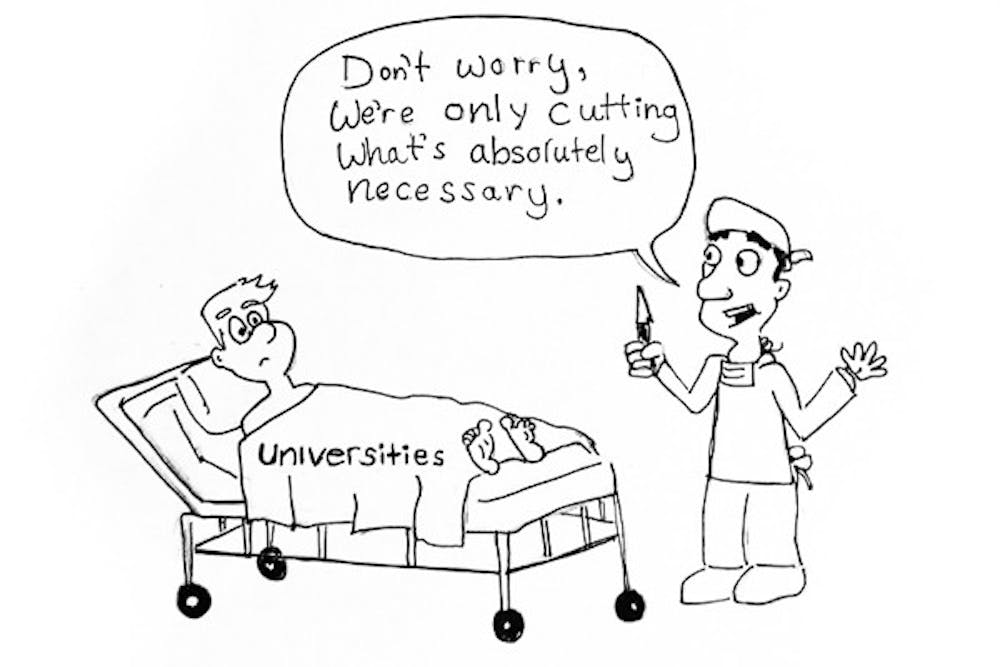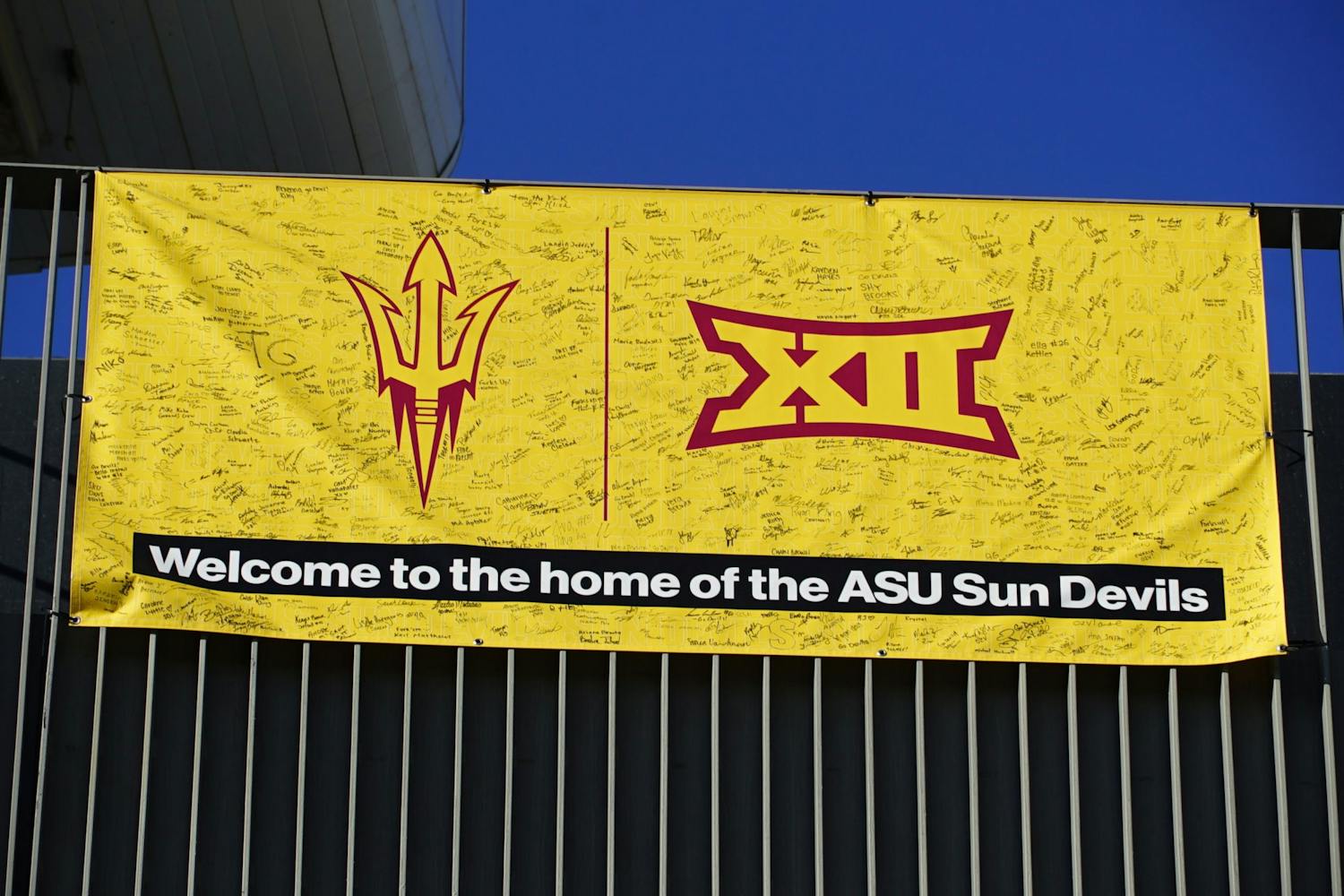Gov. Doug Ducey’s budget is out, and the jury is in — slashing education funding will not help secure a promising future for Arizona’s higher education system. For a governor who spent a large portion of his short term preaching the importance of education for Arizonans, his budget doesn’t mirror his so-called intentions. With $75 million in cuts being ripped from the already struggling coffers of Arizona’s public universities, the future isn’t looking so bright for our state’s education system.
With these proposed cuts, Ducey is far more concerned with funding Arizona’s prison system than he is committed to educating young minds. While the education budget will suffer massive cuts, the executive budget provides an increase for the state penitentiary system. Although studies have been conducted proving lower funding to prisons and higher to education will fight the school-to-prison pipeline, it doesn’t appear Ducey spent any time reviewing them.
In 2013, Arizona’s incarceration rate was 48 percent higher than the national average, according to the National Institute of Corrections. If Ducey truly wanted to change these numbers, he would decrease spending on prisons and increase on education — as only 11 percent of the crimes committed were violent and deserving of long-term incarceration. Money wasted on prisons would be infinitely more valuable in the classroom, where it would keep young minds off the street and focused on a promising future.
Although the $75 million will be a culmination of cuts split between all three of Arizona’s public universities, ASU will be hit the hardest, receiving approximately $40 million less than previous years. ASU President Michael Crow has stressed that in-state students will not suffer a tuition increase.
The same cannot be said for out-of-state students. Despite the frustrations out-of-state students feel, this is a reality that they face when attending a public school not located in their home state, as public institutions are designed to provide affordable higher education options for students in their home state. While NAU has a set percentage that in-state tuition will increase over the next few years, ASU and UA do not. Instead, administrators can increase tuition to meet the needs of the university.
With out-of-state students already paying higher tuition than in-state students and expecting future tuition increases, it is illogical to expect them to foot the full $40 million ASU won’t be receiving this year. In turn, we can expect to see cuts elsewhere.
It’s clear that Ducey plans to stick to his party line and bend over backwards to avoid a tax increase of any type. For that, we wish we could thank him. Unfortunately, his indiscriminate refusal to raise taxes even in defense of what is arguably our state's most important institution – higher education – is a grave mistake with dangerous long-term consequences.
With these cuts, ASU will struggle to maintain its existence as the university we know today. Old and dilapidated buildings will continue to age and become ruined, with the nearly non-existent maintenance funding exponentially decreasing. Professors and staff will be forced to retire, or to take pay cuts, causing the quality of student instruction to decrease while class sizes increase, eliminating the possibility of valuable one-on-one professor to student interaction.
Ducey has betrayed the students of Arizona, contradicted his claims to support and overhaul the Arizonan education system — in favor of continuing capitalization of crime — and has dimmed the future of those hoping to succeed in their education in our great state. The hypocrisy of our governor's education budget cuts is palpable. We can only hope President Crow and the Arizona Board of Regents will continue to keep the students in mind and stretch the budget we are given without taking money directly from our pockets.
Want to join the conversation? Send an email to opiniondesk.statepress@gmail.com. Keep letters under 300 words and be sure to include your university affiliation. Anonymity will not be granted.
Like The State Press on Facebook and follow @statepress on Twitter.





